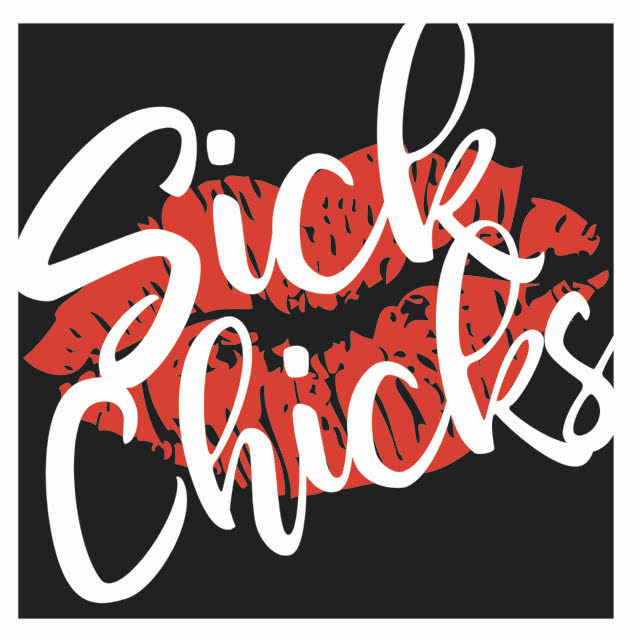This post discusses mental health, specifically eating disorders, in a way that some might find triggering. Practice self care while reading.
It has been about two months since I came clean about my eating disorder, it still feels incredibly surreal. For years my eating disorder has been in control of my life making me suffer in shame and silence, but now this weight has been lifted off of my shoulders (poor word choice, but I can’t think of a better one).
I’ve been in awe of the amount of support I’ve received since sharing my story. That being said, with all of the support has come a great deal of inappropriate, probing questions and rude, dismissive, even triggering comments. I know that most of them don’t come from a place of ill will, but rather stem from ignorance. While that doesn’t make the remarks any less hurtful, it does reinforce the need for education on this issue.
My mom has always said, “It takes a village to raise a child.” I’m realizing that the same can be said of recovering from an eating disorder and you are all part of my village.
There are so many articles and videos out there along the lines of, “What Not To Say To A Recovery Warrior,” which include important information such as; no commenting on weight, no diet talk, no labeling foods “good” or “bad,” etc. I did not want to reinvent the wheel with this post, so I’m choosing to focus on action items to take (and others to avoid) as well as just general things to be aware of. I hope these tips are helpful to be the best village for anyone in your life struggling with an eating disorder not just me, however it is important to note that these are my thoughts and opinions and should be treated as such. Eating disorders are very individual experiences, something that is helpful to me could easily be triggering to someone else and vice versa.
The Diagnosis: There are many types of eating disorders that each come with their own awful, inaccurate stigmas; Anorexia = “just eat,” Bulimia = “ew gross purging,” EDNOS/OSFED = “not sick enough,” Binge Eating Disorder = “just stop eating,” etc. Because of this a lot of people choose not to share their specific diagnosis even if they are public with their eating disorder. Unless you are a medical professional, you are not entitled to this information and it is not appropriate to ask someone to disclose it. If someone does choose to share their diagnosis with you it is important to a) keep that information confidential and b) believe them despite any preconceived notions of what someone with that diagnosis is supposed to look or act like.
Symptoms & Behaviors: Just like any illness, eating disorders come with a set of symptoms and sometimes those symptoms present as behaviors. In a poem about recovery Blythe Baird said, “I don’t want to go into more detail because what if you mistake this poem for an instruction manual? I don’t know how to talk about the rabbit hole without accidentally inviting you to follow me down it.” It is nearly impossible to talk in detail about symptoms and behaviors without it turning into tip-giving, which is dangerous and counterproductive to recovery. That being said, there is so much shame and stigma that openly discussing them can be a form of advocacy, but only if done safely with the proper trigger warnings.
Personification: Within the eating disorder community diagnoses will often be personified, for example Anorexia is coined “Ana” while Bulimia is coined “Mia.” Typically this is used in the context of pro-eating disorder narrative almost making them sound like friends instead of a serious illness. However, others view personifying eating disorders as a way to make it easier to talk about in social settings. As I’m sure you can imagine, this is extremely controversial, so it is important to find out where the people in your life who are impacted stand on the issue before saying anything. Personally, I agree with both camps. I think it is extremely problematic to view Ana as a friend because “she” is most definitely not one (your friends don’t try to make you self destruct and if they do you need new friends), but I also know that it is a lot easier to say, “Ana is being a massive bitch to me today,” than it is to say, “I don’t trust myself to go to CVS alone.”
The Calorie Game: I am the calorie queen. I can look at a menu and calculate all of the calories with shocking ease and accuracy (ask me to calculate tip though and you’ll be waiting a while), but that does not mean I am your personal calorie counter. You will always lose when trying to stump me by playing “Guess The Calories” and more importantly you will almost always trigger me. Counting calories is an obsessive behavior (one of the few I feel comfortable discussing publicly) as a result of my eating disorder, the last thing I need is for anyone to feed (no pun intended) into that. So let’s just play “Name That Tune” or something else instead!
Food Guilt: A lot of people think they’re being helpful by “tricking” eating disorder patients into eating, but this is actually super harmful. Comments such as, “I won’t order anything to eat if you don’t,” are manipulative. If I don’t want to eat and am put into a position where I’m forced to I will end up turning to eating disorder behaviors whereas if I actively choose to eat, I won’t feel the need to “make up for it” in the same way, which is much healthier in the long run.
“Friendly” Food Reminders: Unless you have gotten explicit permission to do so, sending, “Did you eat today?” texts are not okay. I guarantee I am already beyond hyper aware of my food intake and if by some miracle I was not thinking about food in that moment, getting that message just bursts the bubble and drags me back to eating disorder reality.
Dinner Plans: I’ve always hated eating with people, but even more now that my eating disorder is public. It feels like I am constantly being watched and judged even if I’m not. This is something I’m working through and hopefully as I get further into recovery this will change, but for now plans involving food are not always the best idea. Going back to the concept of actively choosing to eat, if I suggest going to a meal then amazing, but if I feel I’m being pushed into a situation where someone could food guilt me or comment on my intake it just leads to massive anxiety and potentially unhealthy behaviors. There are plenty of activities people can do that don’t involve food; watching a movie, walking around the mall, going hiking, or my favorite thing - impromptu dance parties!
Trust Me: I won’t lie, in the past I have definitely tricked and manipulated people for the sake of my eating disorder, but that was before I was dedicated to recovery. Now, I am more likely to come to you and be honest when I do need help or I can’t handle something instead of hiding it. I know it is difficult, I know you’re worried, but it is up to you to trust me enough to reach out. This isn’t to say don’t check in on me! Please do, it is so appreciated! But rather, if I say that I am okay, trust that I am or if you don’t believe me, trust that I am talking to someone about it even if I’m not talking to you specifically.
On That Note… Know Your Place: This is really difficult to say and will likely offend a lot of people and for that I am so sorry. I said it takes a village to beat an eating disorder and I mean it, every person is crucial, however there are some more crucial than others. For example, there are certain comments my parents can make about my food habits and recovery journey that no one else can. There are jokes that other eating disorder patients can make which are hilarious, but are extremely hurtful and offensive if anyone else were to make them. There are certain questions my closest friends can ask about my health that I will always openly and honestly answer that I will either dodge or lie to anyone else asking. That’s just the reality. I’m learning that I do not owe anyone information and that I deserve to have boundaries. While I am now open with the fact that I have an eating disorder, there is still a lot I’m keeping out of the public and respecting my privacy is a huge part of supporting me.
My dad said something the other day that I thought was particularly poignant. He told me, “I don’t have to understand, I just have to support you.” And that is exactly what I hope you all take away from this post. You’re not expected to have all of the answers. You will screw up. You will accidentally say or do something triggering. It is inevitable, but it is not intentional and us eating disorder patients know that. What matters is that you’re trying and that truly means more than anything.
My next chapter of eating disorder treatment is going to be especially difficult, but I know that I’ll get through it because I’m lucky enough to have such a wonderful village cheering me on.
Xoxo,
S

